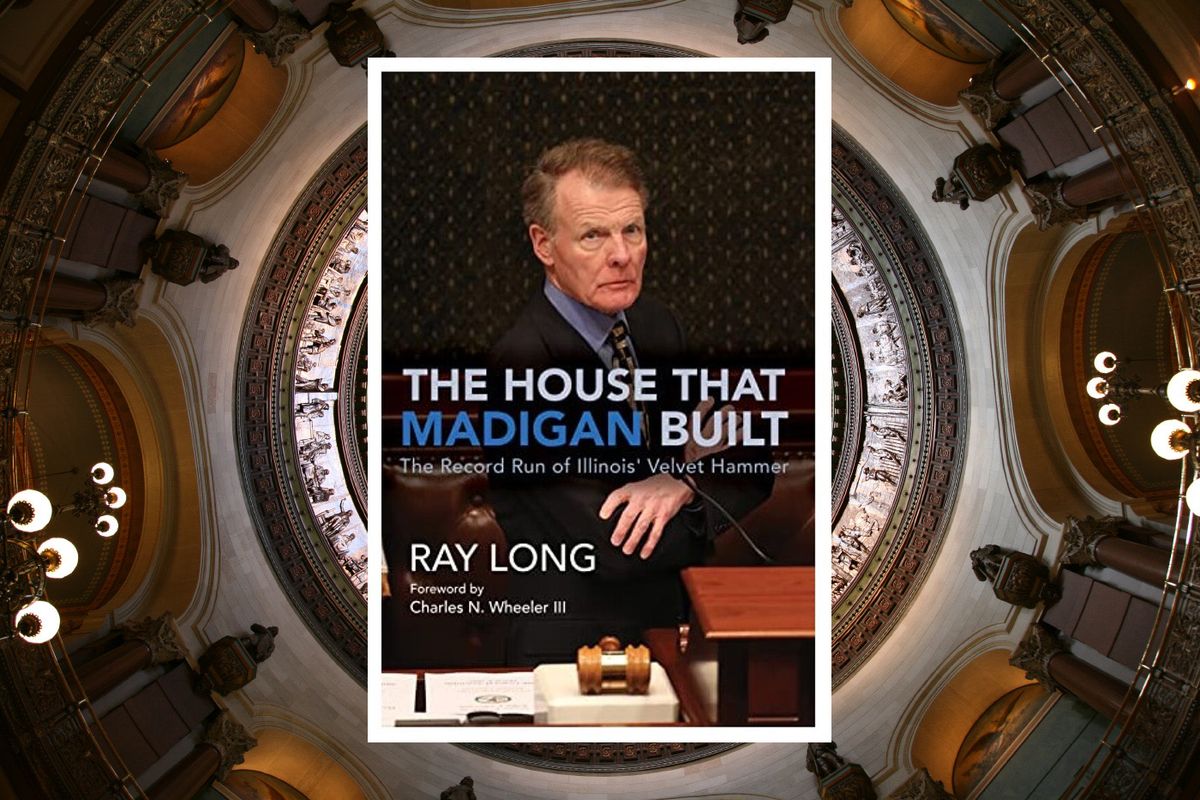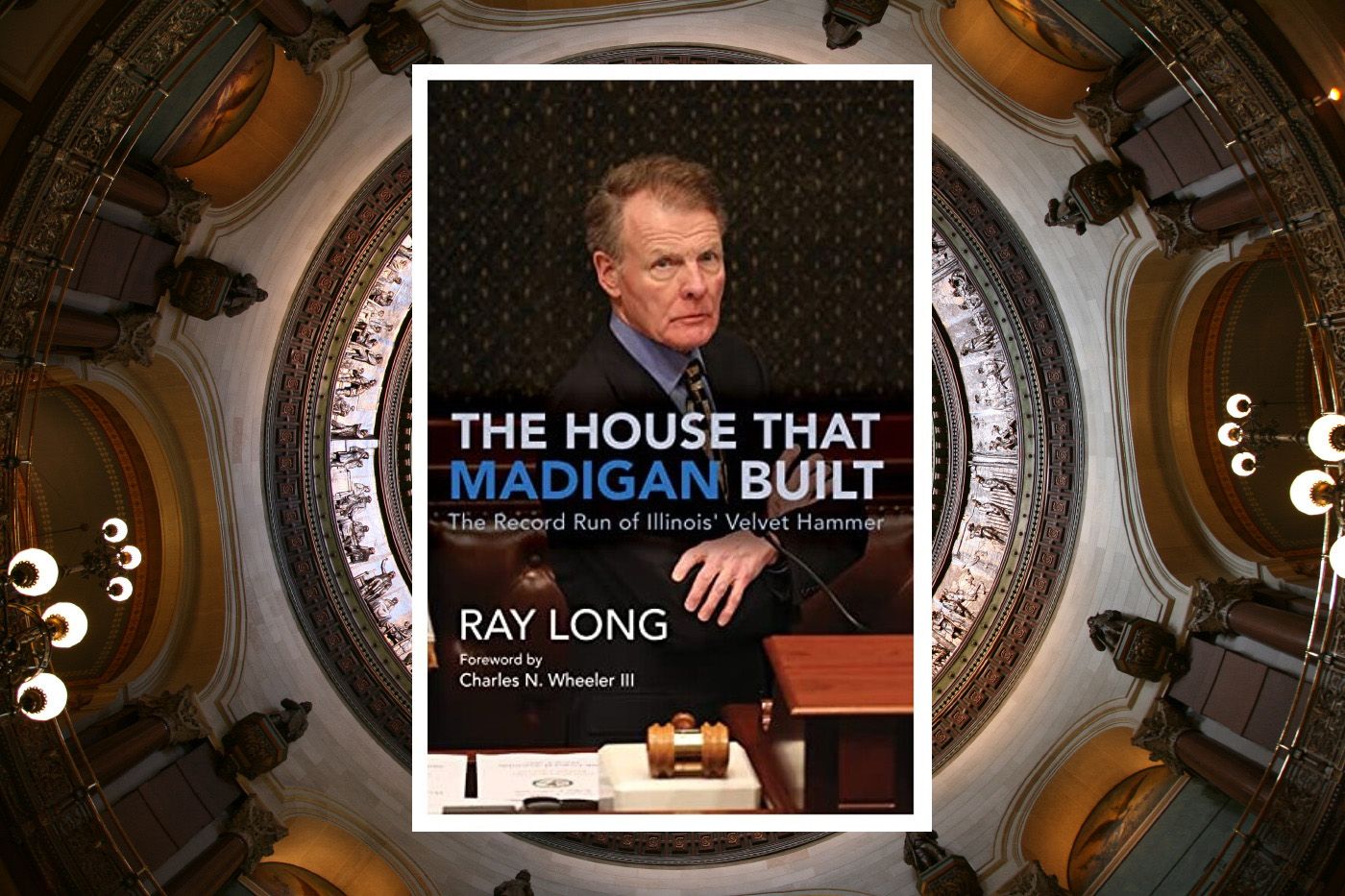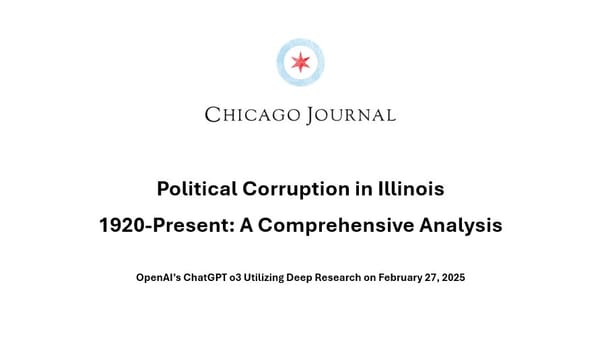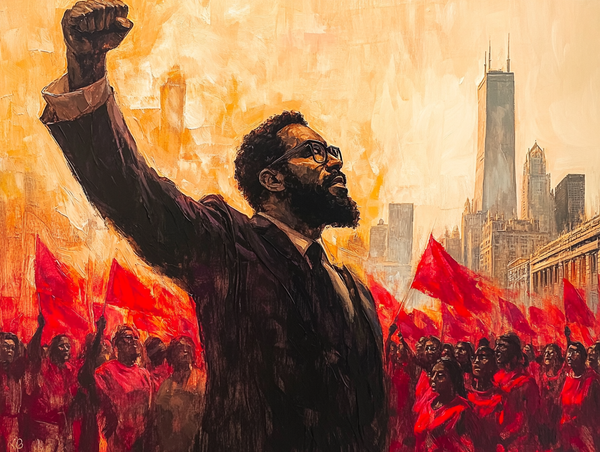"House that Madigan Built" covers speaker's peak to plummet
Chicago Tribune investigative reporter Ray Long's soon to be released book, The House That Madigan Built, is not a biography of former Illinois House Speaker Michael Madigan, but a series of vignettes marking highs and lows of a remarkable political timeline.


By JOHN O'CONNOR | AP Political Writer
SPRINGFIELD, Ill. (AP) — The state's most powerful politician once explained that while mulling a tough decision, he'd often glance across his desk at a photo of the late Chicago Mayor Richard J. Daley “and just ask myself, ‘What would he do?’ It's very helpful.”
Michael Madigan's fealty to the man both lauded and lambasted as “the Boss,” who died nearly a half-century ago, is understandable. Madigan, who made a hobby of collecting and consolidating power in nearly four decades as speaker of the Illinois House, owed his career to Daley, who halfway into his 21-year iron rule of Chicago took the young law school graduate under his wing.
But the anecdote in “The House that Madigan Built: The Record Run of Illinois' Velvet Hammer,” by Chicago Tribune investigative reporter Ray Long, due for release Tuesday by the University of Illinois Press, hints at the 79-year-old Madigan's undoing. His endurance flowed from his agility to change with attitudes and times — a young Catholic conservative who came to embrace abortion rights, same-sex marriage and recreational marijuana. But the attitudes and times ultimately outlasted his allegiance to the old ways.
Long's account is not a biography but vignettes marking highs and lows of a remarkable political timeline. It traces Madigan's history from his control of legislative district map-drawing in 1981, which catapulted him to the speaker's dais in 1983, to questions raised about his judgment after #MeToo movement missteps and finally his implication in a bribery scandal involving ComEd that cost U.S. history's longest-serving legislative leader a record 19th term as speaker last year.
Illinois history is not light on political heavyweights, but Madigan’s “longevity helped build that power and aura that really made him this overarching figure," Long, whose 41-year career as a reporter began as a Statehouse intern the year Madigan became a legislative leader, told The Associated Press.
To Madigan, who declined Long’s request to be interviewed, democracy and its institutions are a fulcrum to elevate the working class. An added bonus was fueling his power “by helping people through the government maze, and particularly the people who helped him with elections," said Long, a two-time Pulitzer Prize finalist.
Madigan caught on quickly, still a young man when he became Democratic committeeman of Chicago's 13th Ward in 1969.
Long writes, “Madigan taught the precinct workers to be salespeople, getting them to push for a particular vote or a sample ballot as if they were selling encyclopedias door to door. 'They wanted a job in the patronage system,' Madigan (said). ‘I would tell them, “Yes, we can put you in a job. But you're going to work for the Democratic Party.'"
Observing this creed afforded him legislative control — and a solid grip on the state's Democratic Party — but might have prefaced political doom in a 22-count federal indictment this month alleging he traded favorable legislation with ComEd for no-show jobs and contracts to award loyalists.
Long's story of Madigan's career covers the heady to the head-scratcher. There is the 1988 “White Sox Miracle” when, faced with a midnight June 30 constitutional deadline to approve a stadium and keep the south-siders in Chicago, Madigan and Republican Gov. James R. Thompson teamed up to stop time like the biblical warrior Joshua. Video clocks were jammed; the successful vote came at 12:03 a.m. July 1. But Madigan said, “By my watch, it was 11:59,” then defied any judge to instruct the legislative branch on telling time.
There's the overkill he displayed in later years, when in a district of growing Hispanic influence he faced primary election competition and so allegedly recruited sham candidates with Latino names to dilute the vote. The 2016 campaign was so nasty that it prompted a federal lawsuit and the legitimate opponent's declaration, “This guy's trying to destroy your soul.”
It was evidence, Long writes, “of a powerful politician whose desire to win is aggressively and meticulously balanced by making sure he does not lose.”
Virtually anyone who encountered him has a Madigan story. Long said he chose those “that were pertinent and impactful and give a little insight into the the most powerful politician that Illinois has seen for decades.”

The Chicago Journal needs your support.
At just $20/year, your subscription not only helps us grow, it helps maintain our commitment to independent publishing.
Follow Political Writer John O’Connor at https://twitter.com/apoconnor





